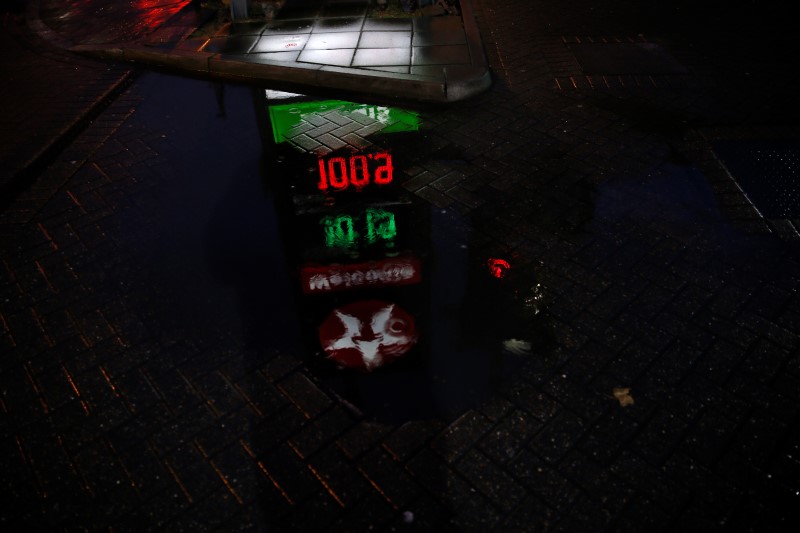By Libby George
LONDON (Reuters) - Oil refineries are shifting into high gear to produce as much gasoline as possible for the world's fuel-hungry drivers - kicking the problem of a worsening diesel glut further down the road.
The "margin" or profit derived from refining crude into diesel has plunged in Europe, hitting multi-year lows this week as demand for the fuel - used heavily for heating in the Northern Hemisphere - wilts towards the end of winter
But gasoline buying and margins are surging as U.S. drivers rev up for the summer and consumers in China and India also hit the road in record numbers. Bank of America (NYSE:BAC) Merrill Lynch said it now expects global gasoline demand growth of 500,000 barrels per day (bpd) - some 65 percent above the 10-year average.
Traders and analysts said such lopsided demand could depress diesel profits for at least another year, as refineries running for gasoline are configured in such a way that they cannot produce it without pumping out thousands of barrels of middle distillates that the world is not consuming.
"The worst is definitely yet to come. The diesel crack can still move lower ... to negative, even," said JBC analyst Michael Dei-Michei, referring to the gap between the price of diesel and the cost of the crude needed to produce it - a measure of profitability. "That's not out of the question."
Gasoline demand over the past year and a half defied all expectations as drivers spurred by cheap oil hit the road in huge numbers and bought more gas-guzzling SUVs.
The development was a lifeline to oil producers, encouraging refineries around the world to run at full steam.
But refiners, who for years struggled to produce enough diesel to power industrial growth worldwide and who bet on flat to falling gasoline demand due to more fuel-efficient cars, spent years and invested hundreds of millions to maximize diesel.
Saudi Aramco and its partners recently opened massive new refineries in the Middle East that were built to produce more than 60 percent middle distillates, while companies including ExxonMobil (N:XOM), Total (PA:TOTF), Galp (LS:GALP) and Repsol (MC:REP) invested in European refineries to boost diesel.
But now that they are up and running, the diesel outlets, such as oil drilling, railroads, construction and other heavy industries, are languishing. Figures in myriad countries, including China, Brazil and the United States, show diesel consumption flatlining or falling.
A warm winter across the northern hemisphere kept households from burning heating oil at the usual pace, meaning stocks of distillates did not draw down as much as they normally would over the winter and the refinery maintenance season.
"There's nothing that can give a (diesel) demand boost until we have a cold winter," Dei-Michei said.
BURGEONING STOCKS, BITTER PILL
A string of analysts have said economic run cuts – when refineries slow production to avoid producing unwanted or unprofitable fuel – will come to the rescue.
But a variety of trading and refinery sources said that if gasoline demand grows at expected levels, the profits for selling it will keep refineries from slowing – placing even more diesel into glutted storage tanks and forcing margins lower.
"It's a pretty bitter pill to swallow for those who invested (in diesel) to improve their margin," a European refinery source said.
Refineries have been working for months to cut diesel production – doing everything from changing their crude slate to shutting upgrading units such as hydrocrackers. But sources said these efforts can sustainably cut only a maximum of around 2 percent for most refineries.
"The European refining system is too exposed to diesel," one oil trader said. "If 65 percent of your products are negative, you'd need $35 gasoline cracks" to run on negative diesel margins.
Still, Dei-Michei and others said a maintenance-season diesel stock draw, which dried out thousands of barrels from floating storage as well as on-land tanks, along with the construction of new tank space, means there is room in storage despite brimming stocks at hubs in Europe, Asia and Singapore.
But the flood into storage could blunt diesel profits until as far as 2018.

"The last time diesel stocks were high at the end of 2009, we entered a period when diesel demand grew more than gasoline, and yet it still took years to run through those excess diesel inventories," said Andrew Reed, analyst with ESAI.